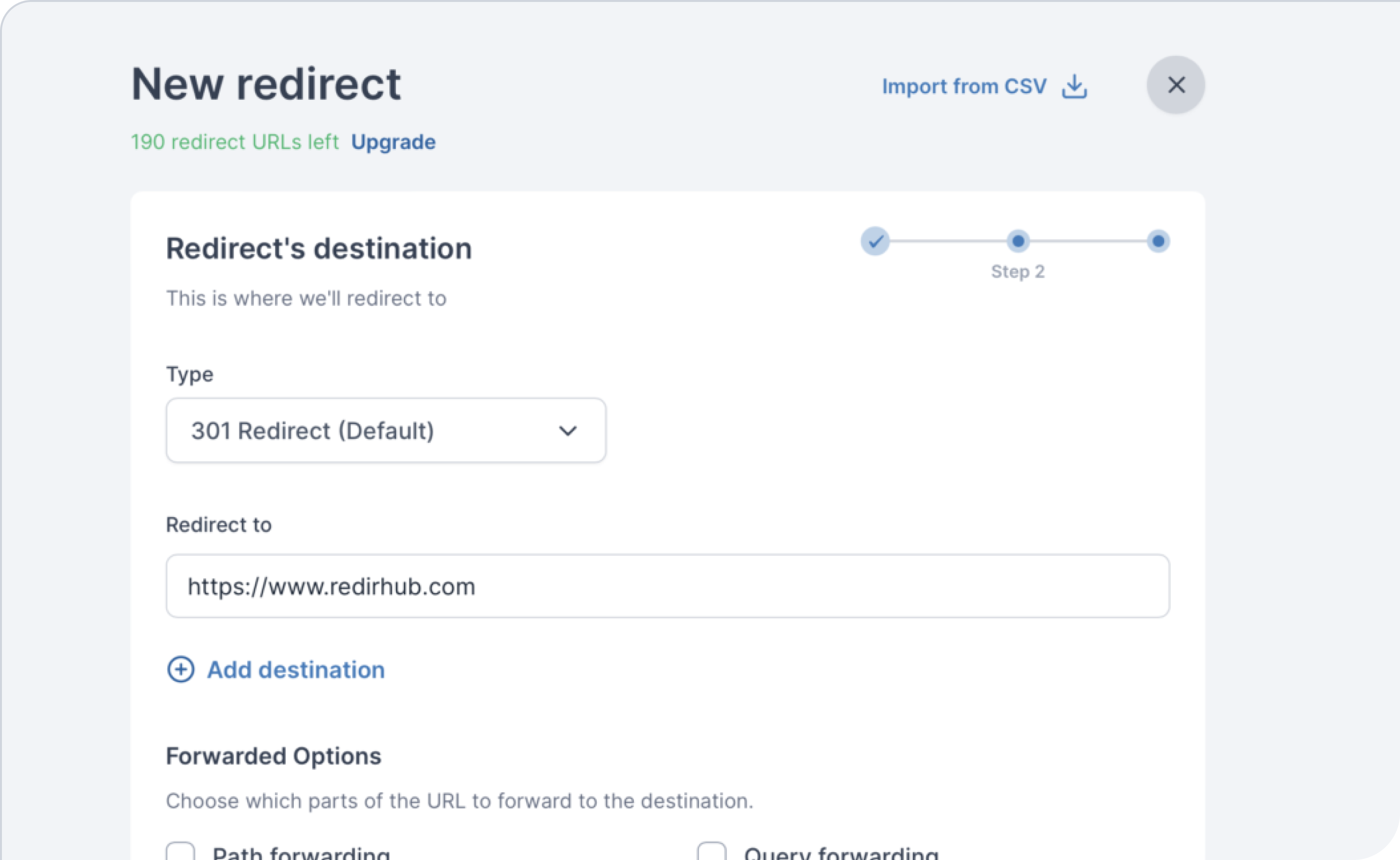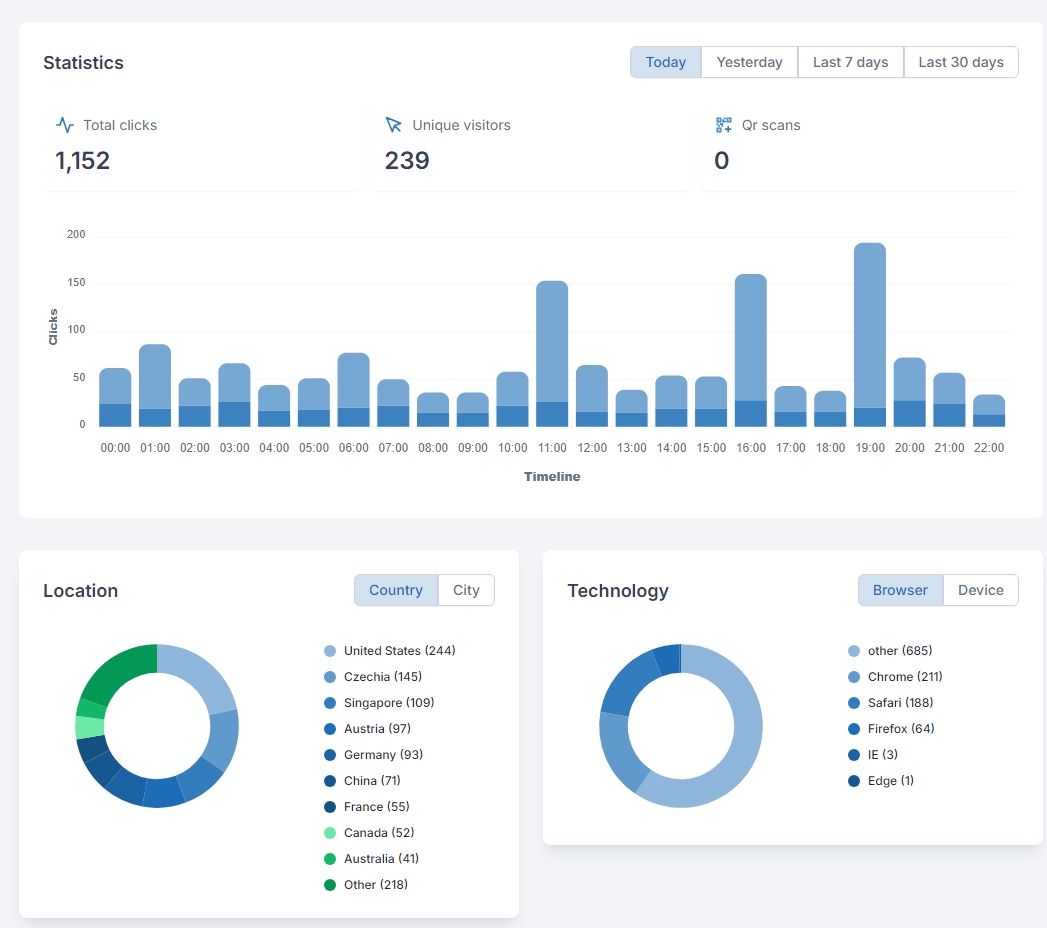Simplify Redirect Management with Tailored Solutions
Streamline your URL management with solutions tailored to your business needs—whether it’s website migrations, marketing campaigns, domain management, or enterprise scalability.

Website Migrations
Seamlessly transition your websites while preserving SEO rankings.
- Effortlessly migrate old URLs to new ones with bulk 301 redirects.
- Maintain search engine rankings with precision mapping of URLs.
- Ensure a smooth user experience during site migrations.


Marketing Campaigns
Maximize the impact of your marketing efforts with advanced redirect tools.
- Create trackable links for ads and campaigns with ease.
- Optimize performance through A/B testing and UTM tracking.
- Boost ROI with detailed analytics for each redirect.
Domain Parking
Centralize and safeguard your brand’s domains with smart redirects.
- Manage multiple domains with wildcard and custom redirects.
- Consolidate your brand with secure and efficient domain handling.
- Protect your business with defensive redirect strategies.


Enterprise-Grade Solutions
Power your business with scalable, reliable, and robust tools.
- Automate bulk redirects with our powerful API integrations.
- Utilize high-speed global edge networks for unmatched performance.
- Enjoy 100% uptime with enterprise-grade solutions.
Why Our Customers Love RedirHub


Zsolt Bikadi


InSearchOf


MarketedPotential


Chris Panton
Frequently asked questions
What is a URL redirect?
A URL redirect, also known as URL forwarding, is a technique used to send users from one URL to another automatically. It’s commonly used for website migrations, marketing campaigns, and fixing broken links.
How do I redirect a URL?
You can redirect a URL by configuring your server, using a redirection service like RedirHub, or adding redirect rules through your website’s CMS or hosting provider.
What is a URL redirection service?
A URL redirection service simplifies the process of managing and tracking redirects, allowing you to create custom short links, analyze traffic, and optimize user flows effortlessly.
What are examples of URL redirection?
Examples include:
- Redirecting oldwebsite.com to newwebsite.com.
- Redirecting example.com/page to example.com/new-page.
- Shortened links like bit.ly/redirect redirecting to a full URL.
What is the best way to manage URL redirects?
Using a dedicated tool like RedirHub ensures that redirects are efficient, properly tracked, and easily managed without technical complexity.
How do I create a custom redirect URL?
You can create a custom redirect URL through RedirHub by setting up a branded domain, choosing a short path, and linking it to your destination URL.
Why is HTTPS better than HTTP for redirects?
HTTPS ensures secure data transmission between your users and the destination server, enhancing trust and protecting against data interception.
Why are URL redirects important?
Redirects are crucial for maintaining SEO rankings, preserving link equity, ensuring a seamless user experience, and avoiding broken links.
What is the difference between URL and HTTP redirects?
A URL redirect refers to sending users from one address to another, while HTTP redirects specify how servers should handle redirection using response codes (e.g., 301, 302).
Why is the ‘www’ prefix not commonly used anymore?
Modern websites often use naked domains (e.g., example.com) for simplicity and better branding, though www is still valid and can be redirected accordingly.
What is the difference between a URL and a URI?
A URL (Uniform Resource Locator) specifies the address of a resource on the internet, while a URI (Uniform Resource Identifier) is a broader term that includes URLs and URNs (names).
Can URL redirects affect SEO?
Yes, improper redirects can harm SEO. Use 301 redirects for permanent changes and 302 for temporary ones to ensure search engines index your content correctly.
What tools are best for managing large-scale URL redirects?
Tools like RedirHub provide advanced management capabilities, including bulk redirect handling, analytics, and automation for high-volume projects.

